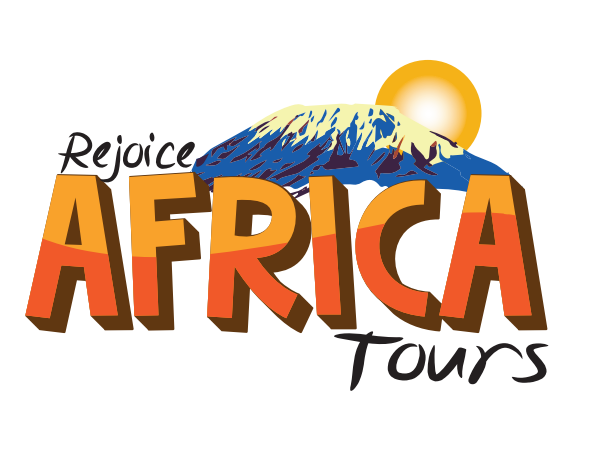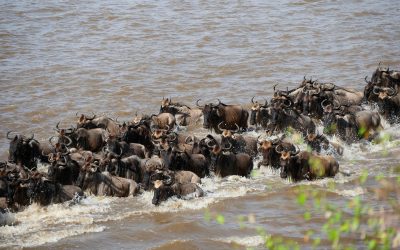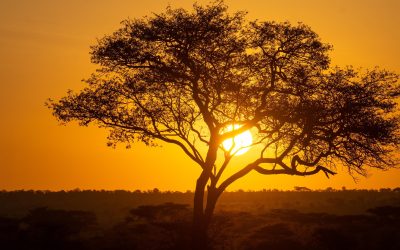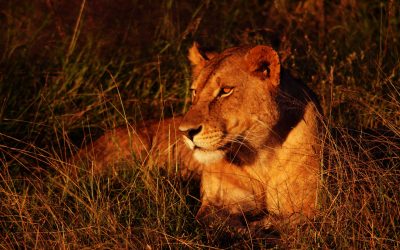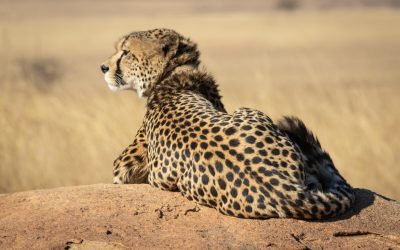Safari Overview
Join our 9-day wildlife photographic safari through the East African Rift Valley, exploring both the eastern and western escarpments. This journey blends wildlife encounters, cultural experiences, and scenic walking tours, offering a unique perspective on Tanzania’s natural beauty.
Expert Suggestions
Best Time to Visit
- June to October offers the best wildlife viewing and photography opportunities, as animals gather around water sources in the dry season. Visibility is excellent, and the risk of rain disrupting your plans is minimal.
- If you’re interested in capturing dramatic predator-prey interactions, January to February is ideal for witnessing the wildebeest calving season in the Serengeti.
Photography Tips
- Bring a telephoto lens (300mm or longer) to capture detailed close-ups of wildlife from a distance.
- Use a fast shutter speed to freeze movement, especially for action shots of predators and migrating herds.
- Take advantage of golden hour lighting—early morning and late afternoon provide stunning natural tones.
- Pack a sturdy tripod for low-light or long-exposure shots, especially for landscape photography.
Packing Essentials
- Wear lightweight, neutral-colored clothing to blend into the environment and avoid attracting insects.
- Bring binoculars for spotting distant wildlife.
- Carry extra camera batteries and memory cards—wildlife photography can be unpredictable, and running out of storage or power is frustrating.
- Use sunscreen, insect repellent, and a hat to stay protected in Tanzania’s intense sun and mosquito-prone areas.
Accommodation
- Opt for budget lodges and campsites strategically located near wildlife hotspots, ensuring maximum exposure to safari experiences.
- Choose accommodations that offer night game drive options or scenic sunrise views for an added photography advantage.
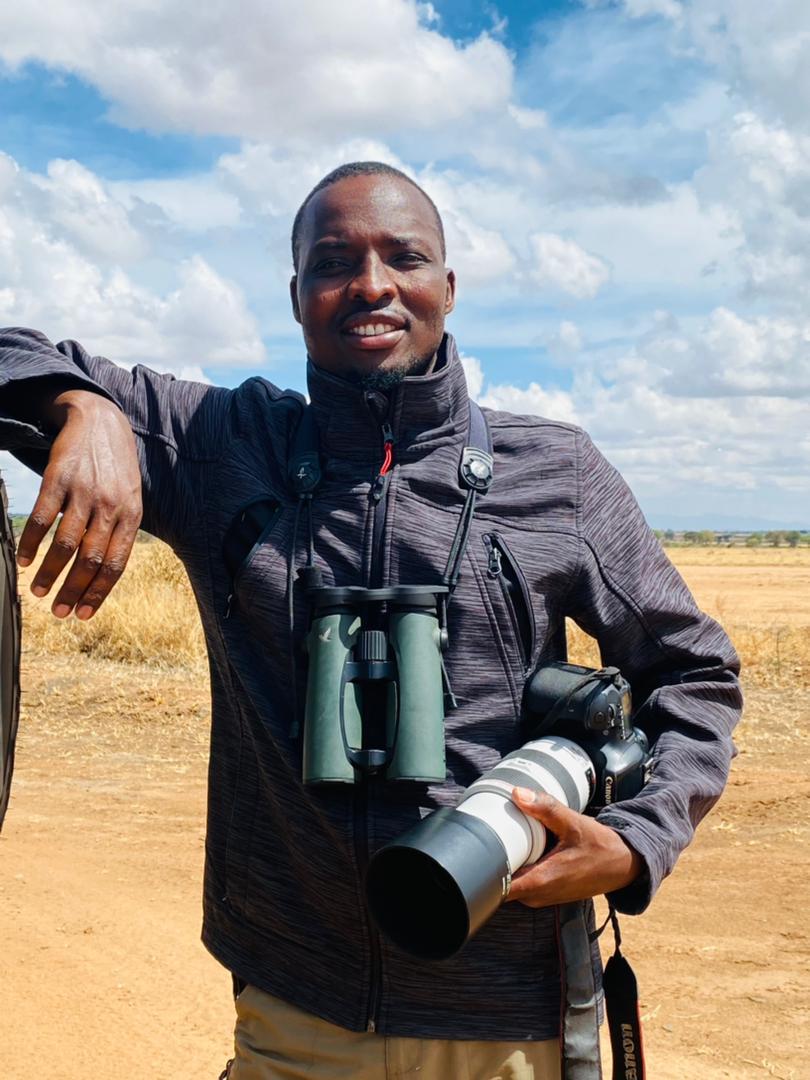
Lenganasa Elong'o
Tour Guide and Trip Planner
Lenganasa “Lenga” Elongó, a proud Maasai from Ngorongoro, is Tanzania’s 2023 Best Guide. He blends conservation, photography, and birding expertise to lead unforgettable walking safaris across East Africa, backed by over a decade with Asilia.
Safari Route Map
– Day 1: Arrival at Kilimanjaro International Airport (JRO) → Transfer to Arusha
– Day 2: Arusha → Lake Manyara National Park
– Day 3: Lake Manyara → Ngorongoro Conservation Area
– Day 4: Ngorongoro → Serengeti National Park
– Day 5–6: Serengeti Great Migration Experience
– Day 7: Serengeti → Lake Natron
– Day 8: Lake Natron → Arusha
– Day 9: Departure from Arusha → Transfer to Kilimanjaro International Airport (JRO)
Safari Schedule
Day 1: Arrival in Arusha
- Arrival at Kilimanjaro International Airport (JRO)
- Transfer to a comfortable lodge in Arusha
- Briefing on safari expectations and photography tips
- Optional: Visit the Arusha Cultural Heritage Centre
Day 2: Arusha to Lake Manyara National Park
- Drive to Lake Manyara National Park (126 km / 78 mi)
- Game drive featuring tree-climbing lions, elephants, and flamingos
- Walking safari along the Rift Valley escarpment
- Overnight at a lodge overlooking the lake
Day 3: Lake Manyara to Ngorongoro Conservation Area
- Morning birdwatching and photography session
- Drive to Ngorongoro Crater (60 km / 37 mi)
- Afternoon crater tour with sightings of rhinos, lions, and wildebeest
- Overnight at a lodge on the crater rim
Day 4: Ngorongoro to Serengeti National Park
- Drive to Serengeti National Park (145 km / 90 mi)
- Game drive en route, spotting cheetahs and giraffes
- Sunset photography session in the vast plains
- Overnight at a tented camp in central Serengeti
Day 5–6: Full Serengeti Great Migration Experience
- Morning and afternoon game drives following the migration
- Walking safari along the western Rift Valley escarpment
- Visit Maasai villages for cultural immersion
- Overnight at a mobile camp near migration hotspots
Day 7: Serengeti to Lake Eyasi (Hadzabe Cultural Visit)
- Drive to Lake Eyasi (220 km / 137 mi)
- Meet the Hadzabe tribe, learning about their hunter-gatherer lifestyle
- Photography session capturing their traditional practices
- Overnight at a lodge near the lake
Day 8: Lake Eyasi to Maasai Village to Arusha
- Drive to Maasai Village (120 km / 75 mi)
- Cultural immersion with Maasai warriors, learning about their traditions
- Drive back to Arusha (240 km / 149 mi)
- Farewell dinner with local delicacies
- Overnight at a lodge in Arusha
Day 9: Departure
- Transfer to Kilimanjaro International Airport
- Optional Tanzanite shopping experience before departure
Important Note
If your travel plans require you to check out later than 10:00 AM, there is the convenience late check-out option for an additional fee, especially helpful for those with evening flights.
Request Quote
Safari Add-ons (Separate Prices)
Hot Air Balloon Safari in Serengeti
- Experience breathtaking aerial views of the Serengeti at sunrise.
- Spot wildlife from above and capture stunning photographs.
- Includes a champagne breakfast after landing.
Cultural Tour with the Hadzabe Tribe
- Engage with one of Tanzania’s indigenous hunter-gatherer communities.
- Price: Available upon request.
Night Game Drive in Tarangire or Lake Manyara
- Explore the nocturnal side of Tanzania’s wildlife.
- Encounter predators like lions and leopards in their nighttime hunting mode.
- Guided by experienced rangers for a thrilling experience.
Maasai Village Visit
- Immerse yourself in the rich culture of the Maasai people.
- Learn about their traditions, lifestyle, and vibrant dances.
- Visit traditional homes and interact with local community members.
Walking Safari in Ngorongoro Highlands
- Get up close to nature with a guided walking safari.
- Learn about flora, fauna, and animal tracking techniques.
- Experience the wilderness from a unique perspective.
Canoeing in Lake Manyara
- Glide across the tranquil waters of Lake Manyara.
- Spot flamingos, hippos, and other wildlife from a different vantage point.
- Enjoy a peaceful and scenic safari experience.
Olduvai Gorge Visit
- Explore the "Cradle of Mankind," where early human fossils were discovered.
- Learn about the fascinating history of human evolution.
- Visit the museum showcasing archaeological findings.
Zanzibar Beach Extension
- Relax on the pristine white sand beaches of Zanzibar after your safari.
- Explore Stone Town’s rich history and vibrant culture.
- Enjoy snorkeling, diving, and spice tours on the island.
Tanzania Safari General FAQs
When is the best time to go on a safari in Tanzania?
The best time depends on your priorities:
- June to October: Dry season, ideal for wildlife viewing as animals gather around water sources.
- January to February: Calving season in the Serengeti, offering incredible predator-prey interactions.
- March to May: Rainy season, fewer crowds, but some roads may be challenging.
What are the top national parks to visit?
Tanzania is home to several iconic parks:
- Serengeti National Park: Famous for the Great Migration and Big Five.
- Ngorongoro Crater: Dense wildlife populations in a unique volcanic setting.
- Tarangire National Park: Known for its elephant herds and baobab trees.
- Lake Manyara National Park: Great for birdwatching and tree-climbing lions.
- Ruaha National Park: Offers a more remote, rugged safari experience.
Do I need a visa to enter Tanzania?
Yes, most travelers require a visa. You can obtain one on arrival at the airport or apply online in advance. Tourist visas are typically valid for up to 90 days.
What vaccinations are required for Tanzania?
Recommended vaccinations include:
- Yellow fever (required if arriving from an at-risk country)
- Hepatitis A & B
- Typhoid
- Routine vaccines (MMR, tetanus, polio)
What should I pack for a safari?
- Lightweight, neutral-colored clothing
- Binoculars and a 300mm+ telephoto lens for photography
- Sunscreen, insect repellent, and a hat
- Comfortable hiking shoes
- Extra camera batteries and memory cards
How much does a Tanzania safari cost?
Safari costs vary based on accommodation, season, and itinerary:
- Budget safari: $200–$400 per day
- Mid-range safari: $400–$800 per day
- Luxury safari: $800+ per day
Is Tanzania safe for safaris?
Yes, Tanzania is generally safe for tourists. Follow these precautions:
- Use reputable safari operators.
- Avoid walking alone at night in cities.
- Keep valuables secure.
- Follow park regulations and guide instructions.
What wildlife can I expect to see?
Tanzania is home to the Big Five (lion, elephant, buffalo, leopard, and rhino), along with giraffes, zebras, cheetahs, hippos, crocodiles, and countless bird species.
What type of safari vehicles are used?
Most safaris use 4x4 Land Cruisers with pop-up roofs for optimal wildlife viewing and photography.
Can I do a self-drive safari?
While possible, self-drive safaris are challenging due to rough terrain and navigation difficulties. Hiring a professional guide is highly recommended.
What is the Great Migration, and when can I see it?
The Great Migration is the annual movement of over 1.5 million wildebeest and hundreds of thousands of zebras across the Serengeti and Maasai Mara.
- June to October: River crossings at the Mara River.
- January to February: Calving season in the southern Serengeti.
What are the accommodation options?
- Budget: Campsites and basic lodges.
- Mid-range: Comfortable lodges and tented camps.
- Luxury: High-end lodges with premium amenities.
Can I combine a safari with a Zanzibar beach holiday?
Absolutely! Many travelers end their safari with a relaxing beach retreat in Zanzibar, known for its white sandy beaches and turquoise waters.
What is the food like on safari?
Most lodges and camps offer buffet-style meals with a mix of local and international cuisine. Special dietary requests can usually be accommodated.
How long should my safari be?
A 5–10 day safari is ideal for visiting multiple parks and maximizing wildlife encounters.
Would you like me to refine or expand any section?
Safari Pricing Terms of Service
Included in the Safari Price:
✔ Meet and greet services upon arrival and departure at the airport.
✔ Full-board accommodation during the safari (Luxury, Standard, or Budget based on package selection).
✔ Private safari guide (English as the standard language; additional language guides available upon request).
✔ Round-trip transfers between the international airport and safari destinations.
✔ National park entry fees.
✔ All meals throughout the safari experience.
✔ Safari vehicles equipped with:
- Ice chest stocked with mineral water.
- Wildlife guidebook for reference during game drives.
- Karibuni welcome packet with useful information for guests.
✔ Government taxes, VAT, and service charges related to accommodation and meals.
✔ Any additional special services requested will be included in the final itinerary package.
Not Included in the Safari Price:
✖ Tanzania Visa Fees:
- $50 per person on arrival.
- USA and Canada passport holders: $100 per person.
✖ Personal Expenses:
- Laundry, telephone calls, alcoholic & non-alcoholic beverages, souvenirs, etc.
✖ Meals not specified in the itinerary.
✖ Domestic flights, unless explicitly mentioned in the itinerary.
✖ Optional/Add-on Tours:
- Hot air balloon ride: $500 per person.
- Other optional excursions available upon request.
✖ Tips and gratuities for guides, drivers, and hotel staff.
✖ Any items of a personal nature not listed in the inclusions.
""Customize Your Tour Plan Now""
Personalize your travel adventure now! Simply complete the booking form below and get ready to be amazed by our team's customized quotes and tailor-made options that perfectly match your unique travel needs... because we just love making your dream come true.
For your information, upgrade options for the safari activities and accommodation can be discussed with our safari consultant, who will be delighted to assist you.
